Faculty Directory
Executive Faculty
Elyse R. Park, Ph.D., MP.H. | Director
Core Faculty
Executive Faculty Members
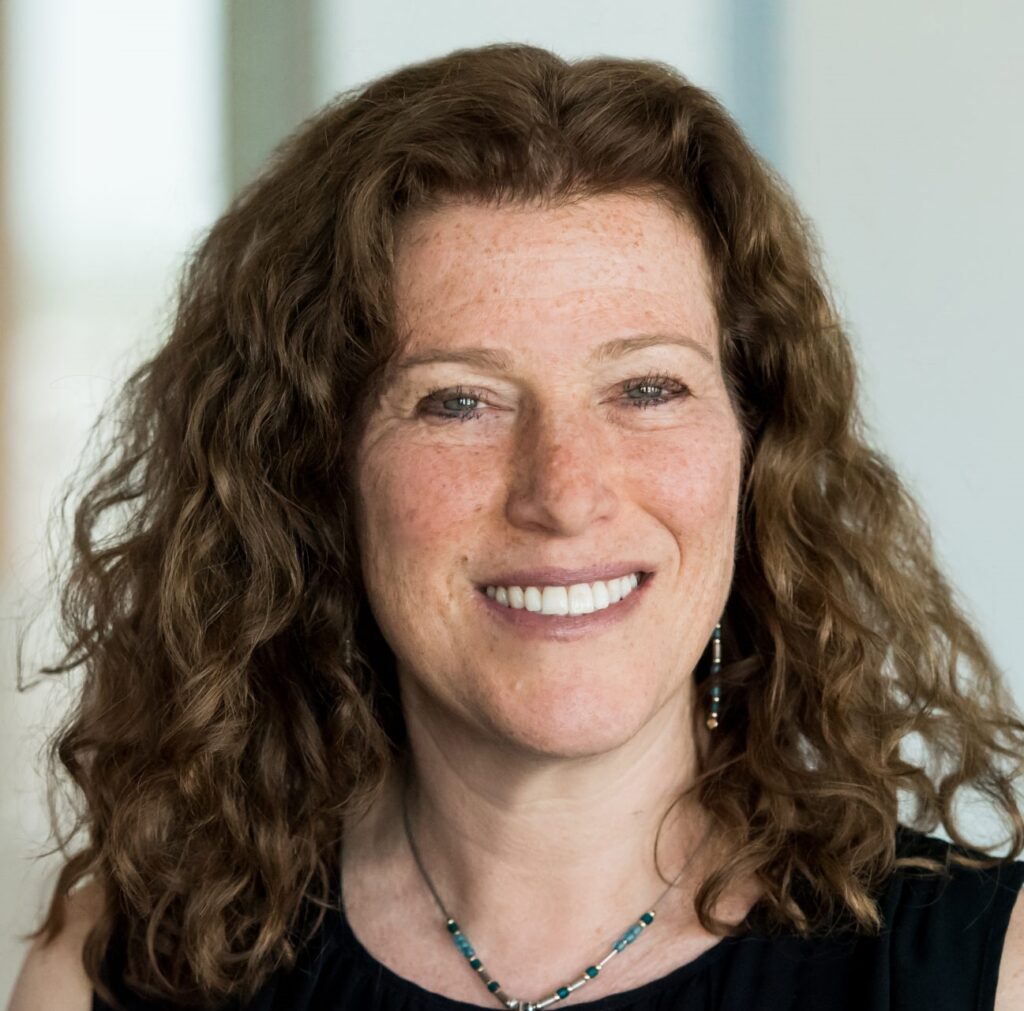
Elyse R. Park, Ph.D., M.P.H.
Director of HPRIR
Dr. Park is Director of Health Promotion and Resiliency Intervention Research (HPRIR) Center. She is a clinical health psychologist and health services researcher who, for the past 20 years at MGH, has been dedicated to understanding and improving health-related behaviors among cancer survivors and populations at risk for cancer and chronic disease. Her research focuses on developing and implementing behavioral interventions to enhance resiliency, decrease tobacco use, and improve access to healthcare.
A Professor of Psychiatry at Massachusetts General Hospital/Harvard Medical School, her research is conducted at the MGH Mongan Institute and Department of Psychiatry and Medicine. Clinically, she treats cancer survivors. She founded the MGH Division of Clinical Research’s Qualitative Mixed Methods Research Unit and directs behavioral research at the Benson-Henry Institute for Mind Body Medicine and the Tobacco Research and Treatment Center and, in this capacity, and has developed evidence-based interventions. Accordingly, she started two hospital-based clinical services: the MGH Cancer Center’s Smokefree Support Service and the MGH Cancer Center Resiliency Survivorship Group Program.

Christina Luberto, Ph.D.
Associate Director of HPRIR Mindfulness Research and Programs
Christina Luberto, PhD, is a licensed clinical psychologist and Assistant Professor in Psychiatry at Harvard Medical School. Her research and clinical interests focus on mindfulness-based interventions for emotional and behavioral health promotion in people with chronic illnesses, particularly heart disease. She works as a staff psychologist and clinical researcher at the MGH Health Promotion and Resiliency Intervention Research Center, and MGH Benson-Henry Institute for Mind-Body Medicine. She is also staff psychologist and Associate Director of the Advanced Clinical Mindfulness Fellowship at the CHA Center for Mindfulness and Compassion, and she teaches mindfulness classes at the BWH Osher Center. Dr. Luberto is Principal Investigator on an NCCIH K23 award and Site Principal Investigator on a NIA P30 award to study Mindfulness-Based Cognitive Therapy (MBCT) for health promotion in cardiovascular disease, and she provides individual and group therapy using MBCT and cognitive-behavioral therapy approaches.
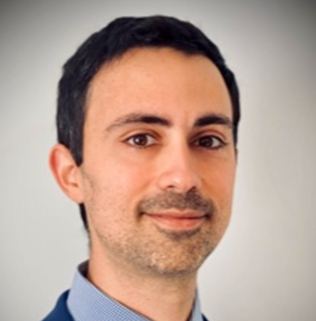
Daniel Hall, Ph.D.
Associate Director of HPRIR Center Utilization and Evaluation Research
Dr. Hall is a licensed clinical health psychologist, an Assistant Professor in Psychiatry at Harvard Medical School (HMS), and a staff psychologist in the Massachusetts General Hospital (MGH) Department of Psychiatry. He serves on the Executive Committee of the Health Promotion and Resiliency Intervention Research Center at the MGH Mongan Institute and holds faculty affiliations in MGH Behavioral Medicine, MGH Psychiatric Oncology Services, and the MGH Benson-Henry Institute for Mind Body Medicine. Dr. Hall’s research and clinical work focuses on mind-body and behavioral interventions for promoting resiliency among adults affected by cancer and other health conditions, with an emphasis on (a) fear of recurrence / uncertainty in illness and (b) insomnia. He has received funding to address these topics from the American Cancer Society, the National Institutes of Health, and philanthropy. He enjoys mentorship and previously served as co-chair of the Integrative Health and Spirituality SIG of the Society of Behavioral Medicine.

Giselle K. Perez, Ph.D.
Associate Director of HPRIR Diversity, Equity, and Inclusion Research and Programs
Dr. Perez is a clinical health psychologist at the MGH and an Assistant Professor of Psychology at Harvard Medical School. She is affiliated with the following centers and programs (listed alphabetically):
MGH Adolescent and Young Adult Survivorship Program, MGH Behavioral Medicine Program, MGH Benson-Henry Institute for Mind-Body Medicine, MGH Cancer Center, Cancer Outcomes Research and Education (CORE) and Survivorship Program, MGH Mongan Institute, Health Policy Research Center, and the MGH Mind Body Program for Cancer Survivors.
Clinically, Dr. Perez specializes in caring for individuals and their caregivers who are impacted by cancer, particularly young adults (ages 18-39). The focus of treatment often centers on post-treatment transitions, managing the unexpected social and emotional challenges that occur after cancer treatment, improving stress and anxiety symptoms, coping with uncertainty, and promoting health behavior change. She draws on cognitive behavioral, positive psychology and mind body tools to guide her work. Dr. Perez also provides care to other populations living with chronic illness, including diabetes and rare genetic diseases. Dr. Perez’s research centers on identifying innovative solutions to improve cancer prevention, health care equity and emotional and physical health outcomes among vulnerable and underserved groups. In particular, her research examines the physical, psychosocial, and biobehavioral (e.g., stress hormones) effects of stress and stress interventions in cancer patients and survivors. In these endeavors, her work blends behavioral and implementation science in its efforts to identify and implement patient, provider, system-level and community-based strategies to improve health care delivery and access.

Joanna M. Streck, Ph.D.
Associate Director of HPRIR Addiction Science Research and Programs
Dr. Joanna Streck completed her doctoral training in clinical psychology at the University of Vermont with a clinical and research focus in addiction. She is currently a junior faculty member at Harvard Medical School, a Research Scholar in the NIDA K12 Substance Use and Addiction Medicine career development program, and a clinical staff psychologist in the MGH Substance Use Disorder Bridge Clinic. Her research focuses on investigating smoking cessation and novel tobacco harm reduction strategies for populations particularly vulnerable to tobacco addiction, such as those with co-occurring substance use disorders (SUDs), non-SUD psychiatric disorders (e.g., depression), and chronic health conditions (e.g., cancer, COPD). She is particularly interested in better understanding and treating the devastating burden of tobacco use in individuals with opioid use disorder through the development of novel treatment strategies.
Core Faculty Members

Angela Wangari Walter, Ph.D., M.P.H., M.S.W.
Angela Wangari Walter is a health services researcher and Assistant Professor of Public Health at the University of Massachusetts Lowell. Dr. Walter’s work has focused on preventing and treating alcohol and other drug use disorders (AUD) and co-occurring conditions including mental illness, Hepatitis C and HIV/AIDS. In addition, Dr. Walter conducts research aimed at improving the quality of care and health outcomes for women. She is Co-PI of a HRSA-SPNS initiative supporting 12 demonstration sites across the U.S. to develop and implement bundled interventions that engage and retain Black Women with HIV in care and treatment. In this role, Dr. Walter is examining implementation processes and assessing outcomes of bundled interventions to inform the replication of interventions to Ending the Epidemic (EtHE). As Co-I on a AHRQ research project, Dr. Walter is working with community health centers and Healthy Start programs to facilitate the adoption and integration of the Gabby System – a health information technology tool designed to identify and modify preconception risks for women. Additionally, she is collaborating with HPRIR faculty, Drs. Park and Ostroff, to examine contextual factors influencing the adoption of evidence-based tobacco use assessment and treatment in community cancer care.

Bettina Hoeppner, Ph.D., M.S.
Dr. Hoeppner is an Associate Professor of Psychology at Harvard Medical School. At Massachusetts General Hospital (MGH), she serves as the director of the Health through Flourishing (HtF) program within the MGH Psychiatry Department, core faculty member of HPRIR, and steering committee member of the MGH Center for Digital Mental Health. Her research focuses on overcoming problematic substance use, with the broad aim of increasing access to care, especially for underserved, stigmatized and marginalized populations. She specializes in auxiliary support that people can access outside of the formal treatment setting; care that can support and extend the care they receive in a hospital setting. To this end, she has taken two approaches: (1) her research examines, builds and tests mHealth approaches to support people as they transition away from substance use; and (2) her research elucidates mechanisms by which community resources (e.g., mutual help, recovery community centers) can be leveraged to support recovery from substance use disorder.

Brett Goshe, Ph.D.
Dr. Brett Goshe is a staff psychologist at Massachusetts General Hospital/Harvard Medical School. He received his Ph.D. from the University of Connecticut, specializing in health psychology. Dr. Goshe’s research and clinical practice focuses broadly on the mental health and treatment intervention development for vulnerable and underserved populations, particularly lesbian, gay, bisexual, transgender, and queer (LGBTQ) individuals.
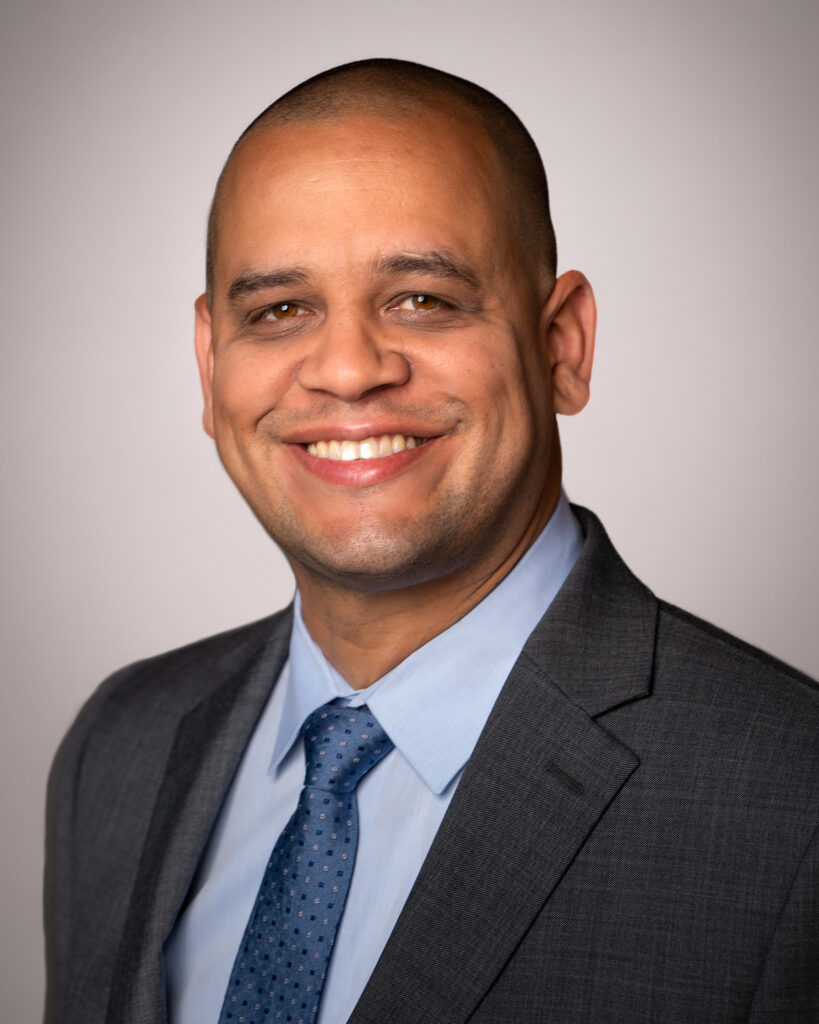
Efrén Flores, M.D.
Efrén J. Flores, MD currently serves as a board-certified staff radiologist in Thoracic Radiology at Massachusetts General Hospital (MGH), is an Associate Professor in Radiology at Harvard Medical School, and Mass General Brigham Radiology Vice Chair for Diversity, Equity and Inclusion. Dr. Flores also serves as Founding Director for the Radiology Inclusion and Systemic Equity (RISE) Center. Dr. Flores graduated from the University of Puerto Rico Medical School and trained in radiology at MGH. Dr. Flores’ nationally recognized health services research program focuses on identifying social risk factors impacting access to radiology care among historically underserved populations and develop programs to bridge the healthcare disparities gap in collaboration with a growing network of community partners.

Gary Wang, M.D., Ph.D.
Gary X. Wang, MD, PhD is a breast radiologist at the Massachusetts General Hospital and Officer for Community Health and Equity for the MGH Department of Radiology. His research focuses on identifying healthcare disparities and developing interventions to improve access and equity for imaging-based care, particularly for breast imaging care. His peer-reviewed scientific publications include investigations on the impact of access-enhancing interventions on screening mammography and image-guided breast biopsy use among vulnerable populations including racial and ethnic minorities, socioeconomically disadvantaged patients, and individuals with serious mental illness. He also has a long-standing collaboration with the MGH Revere breast imaging center to improve access and equity to breast imaging care for the Revere, Chelsea, Everett, and surrounding communities.
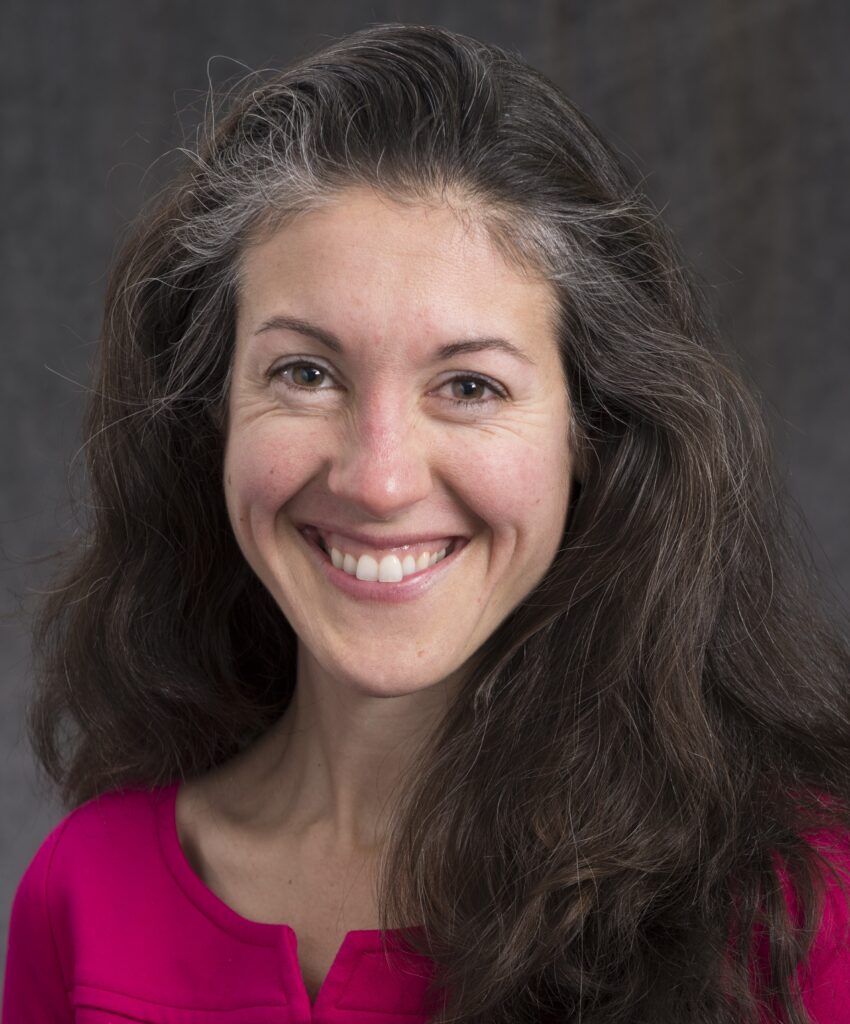
Kelly Irwin, M.D.
Dr. Irwin is a health services researcher and psychiatrist at the Massachusetts General Hospital (MGH) Cancer Center and an Assistant Professor of Psychiatry at Harvard Medical School. She investigates health care disparities in patients with serious mental illness and cancer. Dr. Irwin is the founding director of the Collaborative Care and Community Engagement Program at the MGH Cancer Center, a clinical and research initiative dedicated to achieving equity in cancer care for people with serious mental illness. Dr. Irwin’s clinical research program focuses on developing, testing, and scaling interventions to improve cancer outcomes for people with mental illness and their caregivers. Her research has been funded by the American Cancer Society, the National Cancer Institute, the Massachusetts Department of Mental Health, and multiple foundations. With the support of the Patient-Centered Outcomes Research Institute, Dr. Irwin founded the Engage Initiative (the Cancer and Mental Health Collaborative), which aims to build capacity for person-centered research at the intersection of cancer and mental illness.

Lara Traeger, Ph.D.
Lara Traeger is an Associate Professor of Psychology at the University of Miami and a member of the Cancer Prevention and Control Program at the UM/Sylvester Comprehensive Cancer Center. She maintains a research appointment at the Massachusetts General Hospital and serves as Co-Director of the Qualitative & Mixed Methods Research Unit for the Mass General Division of Clinical Research. Dr. Traeger received her Ph.D. in clinical psychology from the University of Miami and completed her pre-doctoral and post-doctoral fellowships at the Massachusetts General Hospital. Her research focuses on enhancing health behaviors, quality of life, and resilience among adults affected by cancer and/or aging. Dr. Traeger has over 150 published works, including peer-reviewed publications and book chapters. She has been the principal investigator of funded grants from the NIH/National Cancer Institute, American Cancer Society, and American Lung Association, and has served on the editorial boards for peer-reviewed journals including Health Psychology, Journal of Psychosocial Oncology, and Psycho-Oncology. Dr. Traeger provides supervision and mentorship on mixed methods research and the development and testing of behavioral interventions.

Leah Walsh, M.S., Ph.D. Candidate
Leah is a predoctoral clinical fellow in behavioral medicine at Harvard Medical School/Massachusetts General Hospital and is graduating with her Ph.D. in Clinical Psychology from Fordham University in May 2024. She previously completed a 3-year predoctoral research fellowship in psycho-oncology at Memorial Sloan Kettering Cancer Center.
In HPRIR, Leah is mentored by Dr. Elyse Park and is interested in examining how beliefs about lung cancer screening and uncertainty may change over time. Leah’s broader research interests include enhancing caregiver quality of life and characterizing how patient and caregiver prognostic understanding may differ from their provider’s understanding and, more generally, how prognostic understanding impacts care outcomes.

Lucy Finkelstein-Fox, Ph.D.
Lucy Finkelstein-Fox, PhD, is a psychologist in the Department of Psychiatry at Massachusetts General Hospital and an Assistant Professor of Psychology in Psychiatry at Harvard Medical School. She earned her PhD at the University of Connecticut, with specializations in Health Psychology and Quantitative Research Methods and completed her clinical internship in Behavioral Medicine at MGH/HMS. Dr. Finkelstein-Fox’s postdoctoral work was funded by a fellowship in Oncology Population Sciences (NCI T32) at the Dana-Farber/Harvard Cancer Center. Her research focuses on stress and coping processes that impact adjustment to cancer and other chronic illnesses, with a special focus on women’s sexual health and intimate relationships following cancer treatment. Dr. Finkelstein-Fox is also interested in development and applications of mind-body and cognitive-behavioral interventions to enhance resilient adjustment to major life stressors such as the transition to cancer survivorship. She provides cognitive-behavioral therapy to adults coping with chronic stress and medical illness through the MGH Cancer Center’s Psychiatric Oncology program.

Rachel Millstein, Ph.D., M.H.S.
Rachel Millstein is a clinical psychologist at MGH and Assistant Professor in Psychiatry at Harvard Medical School. In addition to the HPRIR, she is the Director of Behavioral Interventions at the MGH Cardiac Psychiatry Research Program, Clinical and Research Co-Director of the Mind Body Health Program at the MGH Home Base Program, and a staff affiliate of the HSPH Lee Kum Sheung Center for Health and Happiness. She was the recipient of a National Institutes of Health K23 award to develop a multilevel positive psychology intervention to promote health behaviors, in particular physical activity, among people with metabolic syndrome. Her research focuses on multilevel strategies for chronic disease prevention and management, resilience, and the intersection of emotions and health. Rachel has authored over 70 peer-reviewed articles and book chapters in these fields. Her clinical interests include evidence-based therapies, positive psychology, lifestyle behavior change, and mindfulness techniques for improving mood, anxiety, and well-being.

Rachel L. Rosen, Ph.D.
Rachel Rosen is a Postdoctoral Psychology Fellow in the Department of Psychiatry at Massachusetts General Hospital. She is funded by a research fellowship in Integrative Medicine (NCCIH T32) at Harvard Medical School and provides therapy at MGH Chelsea Healthcare Center. Previously, Rachel completed her PhD in Clinical Psychology at Rutgers University, where she was awarded a National Research Service Award Pre-Doctoral Fellowship (F31) from the National Institute on Drug Abuse that aimed to characterize e-cigarette use and cessation, using ecological momentary assessment. Broadly, Rachel’s research is focused on the development, evaluation, and implementation of behavioral and mind-body interventions for tobacco/substance use and co-occurring conditions.

Susanne Hoeppner, Ph.D., M.Ap. Stat.
Dr. Hoeppner is an Assistant Professor of Psychiatry at Harvard Medical School. She is the associate director of the Health through Flourishing program, and a biostatistician for the Center for OCD & Related Disorders (CORD) and Medical Practice Evaluation Center (MPEC). Her research interests focus on the application of positive psychology and mHealth solutions to support health behavior change in clinical populations. Dr. Hoeppner’s expertise in clinical research revolves around the practice of research design and statistical analysis; she uses her statistical and methodological expertise to analyze and manage clinical trials investigating the efficacy and mechanisms of action of novel and established types of treatments for anxiety disorders (i.e., OCD, BDD, GAD, and SAD) in adults, interventions to support smoking cessation in adult smokers, and medical practice implementation studies for people living with HIV in sub-Saharan Africa.

Zeba Ahmad, Ph.D.
Zeba Ahmad is a licensed clinical psychologist on staff at the Center for Psychiatric Oncology and Behavioral Sciences at the Mass General Cancer Center, and at the Behavioral Medicine Program at the MGH Department of Psychiatry. She is an Instructor at Harvard Medical School. She collaborates on qualitative, mixed-methods, and intervention development research with HPRIR faculty, including projects aimed at promoting resiliency after psychological trauma, developing supportive care programming for young adult survivors of cancer, and understanding surgical decision-making among healthcare providers, family caregivers, and people living with dementia.
MGH-Affiliated Collaborators

Areej El-Jawahri, M.D.
Dr. El-Jawahri graduated from Harvard Medical School and completed her residency training at Massachusetts General Hospital. She subsequently completed her hematology-oncology fellowship at the Dana Farber Harvard Cancer Center Fellowship Program. Dr. El-Jawahri is an oncologist specializing in the care of patients with hematologic malignancies and those undergoing hematopoietic stem cell transplantation. Her goal is to improve the quality of life and care for patients with hematologic malignancies and their families. Her research interests include investigating patient-reported outcomes, developing interventions to enhance patient-centered decision-making, and designing supportive and palliative care interventions to improve the care of patients with hematologic malignancies and their families. She is also interested in exploring models of health care delivery to improve patients’ quality of life and end of life care and to enhance their prognostic understanding. She serves as the Director of the Blood and Marrow Transplant Survivorship Program and the Associate Director of the Cancer Outcomes Research and Education Program (CORE) at Massachusetts General Hospital.

Elizabeth Waldron, Ph.D.
Elizabeth Waldron, PhD is a clinical research fellow at Massachusetts General Hospital and Harvard Medical School. Her clinical and research focuses are reproductive mental health and trauma-related disorders. Dr. Waldron joined Massachusetts General Hospital through a T32 postdoctoral fellowship in Global Psychiatry, conducting research on mental health and healthcare engagement of trauma-exposed women in resource-limited settings during the perinatal period. Dr. Waldron received her doctorate in clinical psychology from Northwestern University Feinberg School of Medicine, where she specialized in health psychology. She completed her predoctoral internship at Rush University Medical Center, gaining extensive experience in sexual and reproductive stress and trauma treatment and research through the Center for Women’s Behavioral and Mental Health. Prior to graduate school, Dr. Waldron served in the Peace Corps in Paraguay where she developed community health programs on topics including sexual health education and domestic violence prevention at the local and national levels.

Gina Rae Kruse, M.D.
Dr. Kruse is an Assistant Professor at Harvard Medical School in the Division of General Internal Medicine at Massachusetts General Hospital. Her research uses mixed methods to study the delivery of cancer prevention services and tobacco cessation treatment in underserved populations. She is core faculty in the Harvard Catalyst Community Engagement Program and serves as the Implementation Lab Director for the NCI-funded Harvard Implementation Science Center for Cancer Control Equity which partners with Federally Qualified Health Centers in Massachusetts.

Hermioni Lokko Amonoo, M.D., MPP
Dr. Hermioni Amonoo is a physician-scientist and staff physician the Departments of Psychiatry at Brigham and Women’s Hospital (BWH) and Psychosocial Oncology and Palliative Care at the Dana-Farber Cancer Institute (DFCI). She is also an Assistant Professor of Psychiatry at Harvard Medical School and the Associate Training Director of the Brigham and Women’s Hospital-Harvard Medical School Adult Psychiatry Residency Training Program. Dr. Amonoo is a graduate of Harvard Medical School, Harvard Kennedy School of Government, the Massachusetts General Hospital/McLean Hospital Adult Psychiatry Residency Training Program, and the Consultation-Liaison Psychiatry/Psychosocial Oncology Fellowship at BWH/DFCI. Dr. Amonoo’s program of research aims to understand the wellbeing needs of vulnerable cancer populations, especially those with hematologic malignancies, to inform the development of novel behavioral and psychological interventions for patients with cancer and their caregivers. Her research has is also actively exploring the role of positive psychological wellbeing in the overall psychological health of patients with cancer. Her research has been consistently funded by Harvard Medical School, Brigham and Women’s Hospital/Brigham Research Institute, National Cancer Institute, National Institute of Health and the Oppenheimer Family Foundation. Her passion for medical education has inspired her to pursue a wide variety of teaching endeavors and mentorship for college and medical students, residents, clinical fellows, and physician assistants.

Jamie Jacobs, Ph.D.
Dr. Jamie Jacobs is a clinical psychologist at the Massachusetts General Hospital Cancer Center and Behavioral Medicine Service and an Assistant Professor of Psychology in the Department of Psychiatry at Harvard Medical School. She is a clinical researcher and the Director of Cancer Caregiving Research within the MGH Cancer Outcomes Research and Education Program (CORE). Dr. Jacobs received her Ph.D. from the University of Miami, Florida, specializing in health psychology and behavioral medicine. She completed a post-baccalaureate research fellowship at the National Institutes of Health and her pre-doctoral and post-doctoral fellowships at the Massachusetts General Hospital. She co-teaches the Mind, Brain, Behavior seminar course “Fighting Cancer with the Mind” at Harvard University.
Dr. Jacobs’s clinical practice focuses on improving coping and quality of life for people during treatment for cancer and cancer survivors. She specializes in cognitive-behavioral therapy in the Psychiatric Oncology Service at the Mass General Cancer Center. Her research focuses on evidence-based psychosocial interventions to promote behavior change, such as adherence to treatment, and optimize patient and caregiver physical and mental health outcomes during and after cancer. Dr. Jacobs has over 40 published works, including peer-reviewed publications and book chapters. She has been the principal investigator and co-investigator of funded grants from the National Cancer Institute of the National Institutes of Health, and serves as an ad-hoc reviewer for peer-reviewed journals such as JAMA Oncology, the Journal of Clinical Oncology, Psycho-Oncology, Cancer, and Annals of Behavioral Medicine. Dr. Jacobs supervises and mentors trainees in the Behavioral Medicine Service and the Cancer Outcomes Research Program.
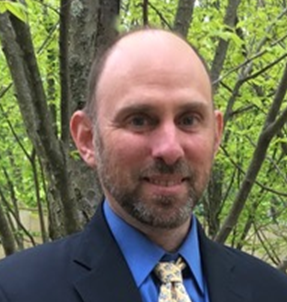
Jeffrey Peppercorn, M.D.
Dr. Jeffrey Peppercorn is a medical oncologist specializing in breast cancer who conducts research related to health policy, bioethics, and cancer survivorship. He serves at the Director of the MGH Cancer Center Supportive Care and Survivorship Program and is an Associate Professor of Medicine at Harvard Medical School.
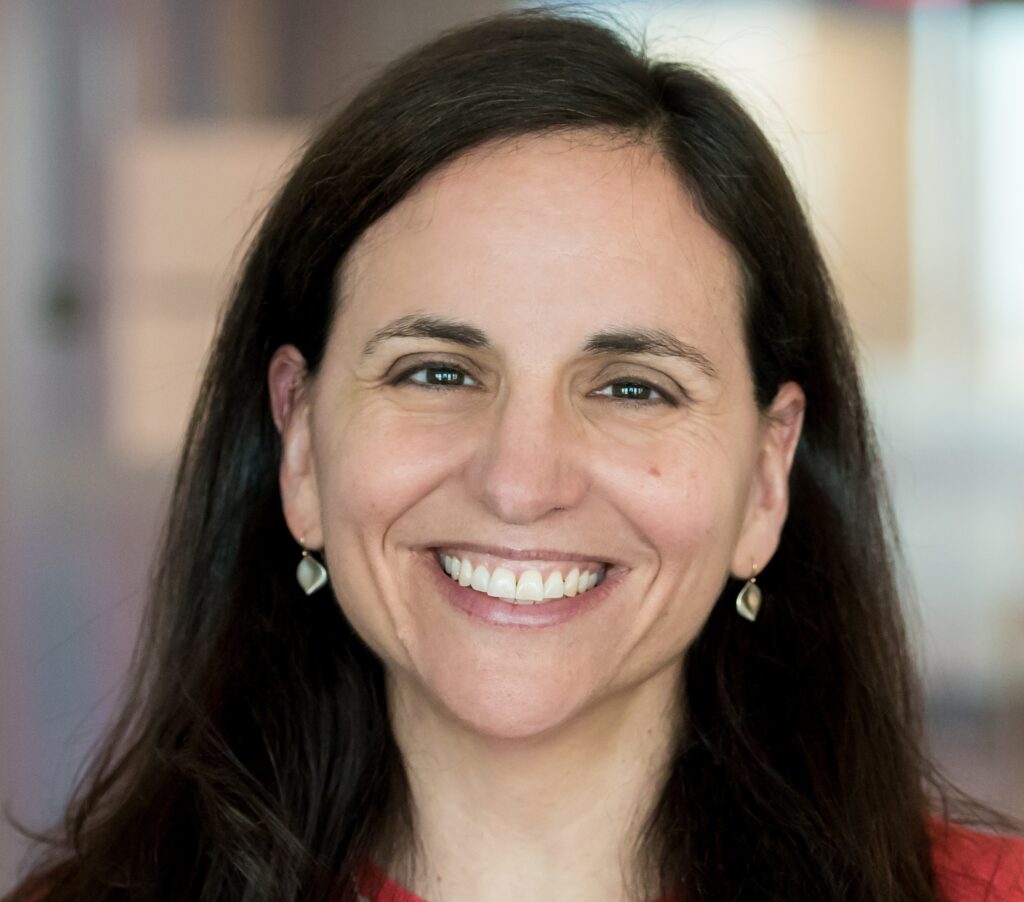
Jennifer Temel, M.D.
Dr. Jennifer Temel is co-Director of the Cancer Outcomes Research and Education Program at the Massachusetts General Hospital Cancer Center and Professor of Medicine at Harvard Medical School. Her research focuses on improving the care and outcomes of patients with serious cancer and their family members. Dr. Temel’s research demonstrating the benefits of early involvement of palliative care for patients with advanced cancer has changed the practice of oncology care around the world.

Joseph Greer, Ph.D.
Dr. Joseph Greer is Co-Director of the Cancer Outcomes Research & Education Program at the Massachusetts General Hospital Cancer Center. He is also an Associate Professor of Psychology at Harvard Medical School. Dr. Greer’s research focuses on the development and testing of supportive care interventions for patients with cancer. As the principal investigator and collaborator on numerous grant-funded projects, he is studying the application of cognitive-behavioral therapy (CBT) to treat anxiety in patients with advanced cancer; nurse-delivered behavioral interventions to improve breathlessness in patients with lung cancer; the use of mobile technology to promote symptom management and adherence to oral chemotherapy medications; and the benefits of early palliative care integrated with standard oncology care. Dr. Greer has published numerous scholarly papers, reviews, chapters, and books related to this work. He has received funding from the National Institutes of Health, American Cancer Society, Patient Centered Outcomes Research Institute, National Comprehensive Cancer Network, and philanthropic donations. Dr. Greer’s program of research is greatly informed by his clinical practice at the MGH Cancer Center where he provides CBT for patients and their families.

Karen Donelan, Sc.D., Ed.M.
Karen Donelan is the inaugural Stuart H. Altman Professor and Chair of US Health Policy within the Schneider Institutes for Health Policy and Research at Brandeis University. Dr. Donelan is also a member of the faculty of the Mongan Institute at Massachusetts General Hospital. She is a prominent survey and team scientist who has designed and conducted hundreds of national and international surveys of the experiences of patients and health professionals in health care systems, internationally, nationally and locally. Recognized for her skill in designing surveys to measure the experiences of diverse professional and patient/consumer populations, Dr. Donelan’s current and recent national projects include the health workforce changes needed to improve care for frail older adults, and assessments of quality of life and care innovations for persons with complex illness, cancer, disability and dementia. These include understanding the impact of COVID-19 on the health workforce and patients in congregate housing; evaluation of innovations in improving understanding of insurance coverage for cancer survivors, and a randomized trial of a virtual clinic to improve evidence-based care for people with Down Syndrome. She has led system studies of patients and the workforce to measure diversity, equity and inclusion, teaching nationally through the Disparities Leadership Program. She is interested in informing efforts to foster cultures of respect in health systems, and in mentoring across differences.
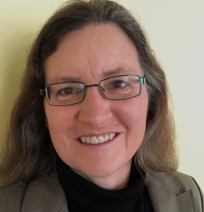
Karen Kuhlthau, Ph.D.
Karen Kuhlthau is a Professor in the Department of Pediatrics at Harvard Medical School and Massachusetts General Hospital. Dr. Kuhlthau conducts mixed methods research on children with special health care needs and more specifically children with autism spectrum disorder (ASD) and survivors of children with cancer. Much of her work is devoted to understanding the impact of childhood chronic conditions on family members. As part of this work, Dr. Kuhlthau has collaborated with Dr. Park’s lab to test adaptations of the Relaxation Response Resiliency program in populations of parents and siblings of children with chronic conditions. She has over 150 peer reviewed publications Her research has been supported by The Maternal and Child Health Bureau, the Lance Armstrong Foundation, National Institute of Health, and the Autism Speaks Foundation.

Louisa Sylvia, Ph.D.
Dr. Louisa Sylvia is a staff psychologist and associate director at Dauten Family Center for Bipolar Treatment Innovation at Massachusetts General Hospital, director of the Office for Women’s Careers at Massachusetts General, and an associate professor at Harvard Medical School. Dr. Sylvia’s major research interests are developing resilience and wellness programs for individuals with mood disorders. She has received funding to develop in-person, therapist administered lifestyle and sleep interventions for individuals with serious mental illness as well as online, self-directed programs to increase physical activity and overall wellness.
Dr. Sylvia has published over 150 peer-reviewed manuscripts in her area of specialization, co-authored a workbook for Bipolar II Disorder, authored the Complete Wellness Workbook for Bipolar Disorder as well as presented her work at numerous local, national and international conferences. She assisted in creating MoodNetwork, a patient-powered research network, funded by the Patient Centered Outcomes Research Initiative. MoodNetwork (www.moodnetwork.org) brings together thousands of individuals with mood disorders to improve their overall wellness.
Dr. Sylvia is also a clinician who treats patients with mood and anxiety disorders as well as a prominent educator and mentor in her field. She has spoken nationally on the importance of role models and mentors for female faculty and currently oversees faculty development for women at Massachusetts General Hospital.
Dr. Sylvia received her Bachelor of Arts degree with honors from Wesleyan University in Middletown, CT. She received her doctoral degree in Clinical Psychology at Temple University in Philadelphia, PA and completed her psychology internship at McLean Hospital in Belmont, MA. Dr. Sylvia is a member of the American Psychological Association, Society of Research and Psychopathology, Association of Behavioral and Cognitive Therapies and World Congress of Behavioral and Cognitive Therapy.

Marisela Dy-Hollins, M.D., MSCR
Marisela Dy-Hollins is a child neurologist in the Department of Neurology and is the Clinical Director of the Pediatric Movement Disorders Program at the Massachusetts General Hospital. She is an Instructor at Harvard Medical School. Her research is focused on identifying sex disparities in Tourette Syndrome and related tic disorders and how social determinants of health may contribute to possible disparities. Her research is currently funded by a K12 through the Child Neurologist Career Development Program.

Rachel Vanderkruik, Ph.D.
Rachel Vanderkruik is a Staff Psychologist with the Center for Women’s Mental Health at Massachusetts General Hospital (MGH). She completed her predoctoral internship in the Cognitive Behavior Therapy (CBT) track at MGH as she received her PhD in Clinical Psychology from University of Colorado Boulder. She has been trained in evidence-based psychotherapies, including CBT, Acceptance and Commitment Therapy (ACT), and Mindfulness Based Cognitive Therapy (MBCT). Rachel also has a Masters in Science from Harvard T.H. Chan School of Public Health where she concentrated in Maternal and Child Health. Her work focuses on the promotion of women’s mental health and wellbeing, particularly during transition time periods (e.g., pregnancy and the postpartum, adolescence). She has training in Mixed Methods Research, Implementation Research, and Community-Based Participatory Research (CBPR). Rachel is passionate about increasing access to evidence-based interventions and services through novel delivery methods (e.g., online platforms, peer delivery, and integrated care) and addressing disparities in mental health access and outcomes nationally and on a global scale.

Sara W. Lazar, Ph.D.
Sara W. Lazar, PhD, is an Associate Professor in the Psychiatry Department at Massachusetts General Hospital and Harvard Medical School. The focus of her research is to elucidate the neural mechanisms underlying the beneficial effects of yoga and meditation, both in clinical settings and in healthy individuals. She has been practicing yoga and mindfulness meditation since 1994. Her research has been covered by numerous news outlets including The New York Times, USA Today, CNN, and WebMD.
External Collaborators

Amelia Stanton, Ph.D.
Amelia M. Stanton is a clinical health psychologist and an Assistant Professor of Psychological and Brain Sciences at Boston University. She is also an Affiliated Investigator at the Fenway Institute, and she maintains a research appointment at Massachusetts General Hospital, where she completed her pre-doctoral internship and her postdoctoral fellowship in global psychiatry within the Behavioral Medicine Program.
Her work primarily focuses on designing and testing interventions that mitigate both sexual and mental health disparities and improve engagement in care among women with HIV, women at risk for HIV, and other marginalized or minoritized populations, including transgender and gender diverse individuals. She conducts research domestically and internationally in resource-limited settings with high HIV prevalence rates.

Anne C. Kirchhoff, Ph.D., M.P.H.
Anne C. Kirchhoff is a tenured Associate Professor of Pediatrics at the University of Utah School of Medicine and a Huntsman Cancer Institute Investigator in the Cancer Control and Population Sciences Research Program. As a health services researcher, her program primarily concerns evaluating patient outcomes related to healthcare access and cancer late effects, and developing interventions for childhood, adolescent and young adult cancer survivors, with a focus on addressing the social and financial consequences of cancer. Dr. Kirchhoff leads a range of studies from interventions at Huntsman Cancer Institute and Primary Children’s Hospital to statewide analyses of survivor outcomes using the Utah Population Database. Her research interests also include using large, population-based surveys to examine socioeconomic outcomes of cancer survivors.
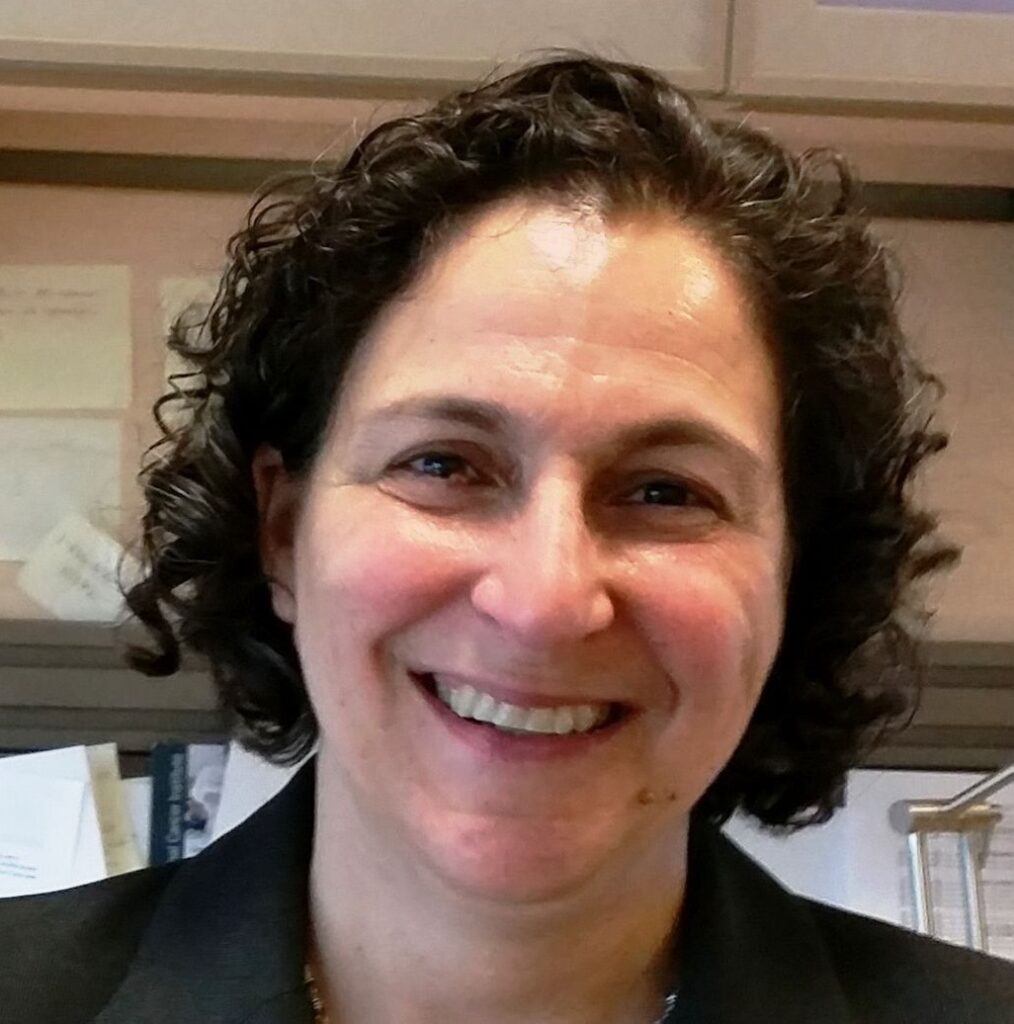
Ilana Gareen, Ph.D.
Ilana Gareen is an epidemiologist with more than 20 years of experience in the collaborative design and conduct of studies of diagnostic imaging technologies. Her research focuses on patient outcomes associated with diagnostic imaging technologies, including the impact of imaging on patient health, patient quality of life, and medical care utilization. She currently serves as Co-Chair for the ECOG-ACRIN Cancer Care Delivery Research Committee. In that role, she collaborates on the collection of the downstream consequences of medical interventions, including adverse events and patient-reported outcomes.
Gareen directs the Outcomes and Economics Assessment Unit at Brown University. She has been responsible for the collection of patient-reported outcomes in many ECOG-ACRIN clinical trials. She was Co-Chair for the American College of Radiology Imaging Network National Lung Screening Trial (NLST) and a key member of the NLST Executive Committee responsible for day-to-day operation of the trial, as well as for publication and dissemination of the primary trial results. She currently holds NIH Research Project grants to explore the impact of significant incidental finding detection in the NLST on patient morbidity and mortality and to compare lung screening efficacy in the NLST versus effectiveness in community lung screening.

Jamie Ostroff, Ph.D.
Dr. Jamie Ostroff received her PhD in Clinical Psychology from Vanderbilt University, and completed her clinical internship at University of Medicine and Dentistry of New Jersey and postdoctoral fellowship at Memorial Sloan Kettering Cancer Center. She serves as Chief, Behavioral Sciences Service, Vice Chair for Research and Director of the Tobacco Treatment Program in the Department of Psychiatry and Behavioral Sciences at Memorial Sloan Kettering Cancer Center. She is a clinician, scientist and educator with expertise in developing, evaluating and implementing innovative, theory-driven, multi-level interventions to increase integration of evidence-based tobacco treatments and promote tobacco cessation, particularly among cancer patients and those seeking lung cancer screening. She also has a keen interest in addressing stigma as a barrier for tobacco treatment in clinical settings. Dr. Ostroff currently serves on the Go2 Foundation for Lung Cancer’s Scientific Advisory Board, the American Cancer Society’s National Lung Cancer Roundtable and the Expert Panel for the Cancer Centers Cessation Initiative (C3I). She is delighted to collaborate with Dr. Elyse Park on several research studies focusing on improving the reach and effectiveness of clinical practice guidelines for tobacco treatment in cancer care.

Jordan Neil, Ph.D.
Dr. Jordan Neil is an Assistant Professor in the TSET Health Promotion Research Center in the Stephenson Cancer Center and the Department of Family and Preventive Medicine at the University of Oklahoma Health Sciences Center. Dr. Neil received his Ph.D. from the University of Florida and completed his postdoctoral training at Harvard Medical School/Massachusetts General Hospital. He specializes in translational cancer communication science, which uses communication-centered strategies to translate evidence-based cancer prevention behaviors into practice. Dr. Neil’s research focuses on how to improve uptake of tobacco cessation services and colorectal and lung cancer screening, as well as participation rates in cancer clinical trials. To do so, Dr. Neil leverages mixed methods and adaptive trial designs to develop, evaluate, and optimize digital interventions, with particular interest in disseminating tailored navigation strategies to meet the needs of rural and minority patient populations.

Lynne Wagner, Ph.D.
Dr. Lynne Wagner is a clinical health psychologist and a Professor in the Department of Social Sciences & Health Policy, Division of Public Health Sciences at the Wake Forest School of Medicine. Dr. Wagner is a Member of the Wake Forest Baptist Comprehensive Cancer Center, where she maintains leadership roles as the Director of Research and Clinical Integration, Cancer Prevention and Control, and as Co-Director of the Qualitative and Patient-Reported Outcomes Developing Shared Resource. Dr. Wagner is Co-PI of the ECOG-ACRIN NCI Community Oncology Research Program (NCORP) Research Base and is the Co-Director of the ECOG-ACRIN Cancer Control and Outcomes Program. In this role, Dr. Wagner is responsible for leading a program of cancer control, survivorship and quality of life research within the National Clinical Trials Network (NCTN). She has contributed to the successful conduction of numerous cancer survivorship trials and the collection of patient-centered outcomes on over 35 National Clinical Trials Network. Dr. Wagner’s research expertise includes psychosocial oncology, eHealth interventions in cancer survivorship, and cancer symptom management. Dr. Wagner has expertise in measuring patient-reported outcomes and integrating patient-reported outcomes into clinical care, with the goal of systematically bringing the patient’s voice to the clinical encounter. She has served as the Principal Investigator or Co-Investigator on numerous extramurally-funded projects and has authored or co-authored over 100 peer-reviewed publications.

Michelle Dossett, M.D., Ph.D., M.P.H.
Dr. Michelle Dossett is an Assistant Professor of Medicine in Residence at the University of California, Davis. She also serves as an Associate Director of Physician Well-Being for UC Davis Health and is the medical director of the UC Davis Integrative Medicine Clinic. She received her MD and PhD in immunology from the University of Washington in Seattle, Washington. She completed her internship and residency in internal medicine and research fellowship in complementary and integrative medicine at Beth Israel Deaconess Medical Center and Harvard Medical School and received her MPH degree from the Harvard School of Public Health. Dr. Dossett’s research interests include mind body medicine, clinician well-being, and understanding the therapeutic effect of the patient-clinician interaction.

Nathalie Rapoport-Hubschman, M.D.
Nathalie Rapoport-Hubschman is a physician and medical psychologist. After receiving her M.D. from the University of Lille, she trained in clinical and cognitive psychology in France and did her post-doctorate training in health psychology at Tel Aviv University. She has been a research fellow at the Stress and Health lab at Stanford University and then at the Benson Henry Institute for Mind Body Medicine, where she was part of the team working with Dr. Elyse Park on the manualization of the SMART-3RP Program. From 2003 to 2013, she worked at the Rabin Medical Center in Israel where she was first the Director of Psychosocial Programs for Infertility Patients and then the Head of the Medical Psychology Department. She is now the Director of the Mind Body Training Program for health professionals and teaches in several French healthcare programs, notably at the Pitié-Salpétrière Medical School. In her clinical practice, she provides CBT, ACT, Positive Psychology and Mindfulness-Based Interventions to a wide range of clinical populations. Dr Rapoport-Hubschman is especially interested in the adaptation, implementation and evaluation of evidence-based Mind Body Medicine training to healthcare professionals and chronic illness patients.

Ruth C. Carlos, M.D.
Ruth C. Carlos is a Professor of Radiology, and serves as the Assistant Chair for Clinical Research at the University of Michigan. She received her medical degree from and completed her diagnostic radiology residency at the University of Chicago, and fellowship at the University of Michigan in Ann Arbor, joining the faculty at the University of Michigan in 1998. She has received a Master’s Degree in the School of Public Health at the University of Michigan.